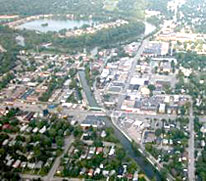
|
Broad Ripple Random Ripplings

The news from Broad Ripple
Brought to you by The Broad Ripple Gazette
(Delivering the news since 2004, every two weeks)

|
| Brought to you by: |

|

|
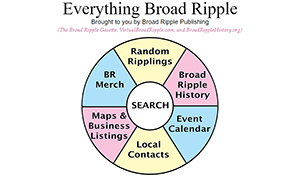
|

|

|

|
Converted from paper version of the Broad Ripple Gazette (v02n10)
The Prisoner's Walk, Part II - by Joseph Foster
posted: May 13, 2005
Crown Point, IN to Lodi, Wisconsin
241 miles (144 by foot, 10 by car, 87 by train)
I write to you from a library in Lodi, Wisconsin, near the Ice Age Trail. As I continue walking north, this friendly town marks the beginning of a more rugged, peaceful terrain. To get here, I rode through northwest Indiana and Chicago on a METRA train, then walked on these blistery feet through the fast-paced suburbs of Chicago, Milwaukee and Madison. Along the way, I have discovered many universal freedoms of the human heart, encountered many strange looks, and a surprising amount of genuinely charitable gestures. I smell pretty bad. My beard has grown thick. It doesn't seem I belong in the city wearing this wide-brimmed hat and full backpack. Somehow the solitude has brought me peace, despite walking alongside streams of rush hour traffic. How is it possible to live in two worlds, the quiet and the unquiet, simultaneously?
The road less traveled.
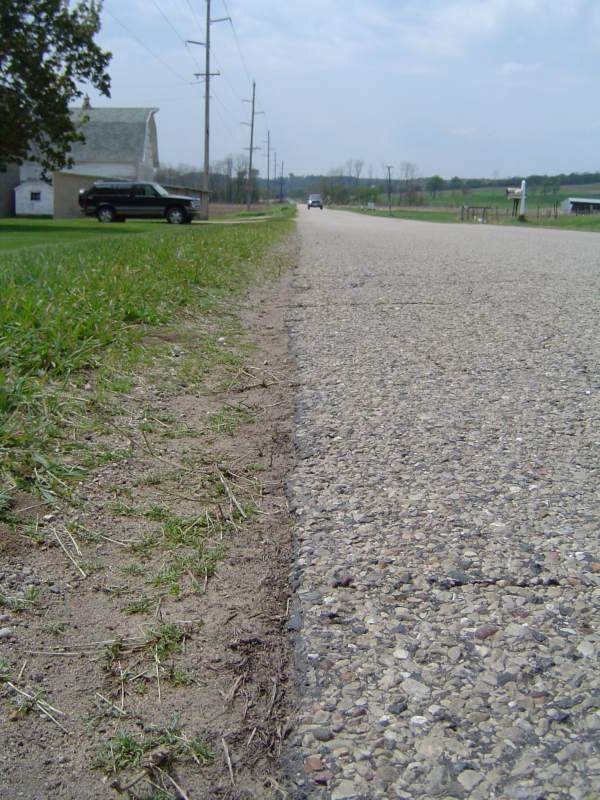
image courtesy of Joseph Foster
I had lunch yesterday at the only gas station in the farm town of Dane, Wisconsin. I sat for hours writing a letter to my girlfriend and listening to the neighbors come and go. Every now and then, I looked up at the cashier. I didn't know her, but everybody who entered called her Lois. She must have had the greatest job in the world. I overheard so many lovely conversations about friends, family, schoolwork, dairy cows, aspirations, the fields, even a tearful update on the health of a grandmother. Lois knew them. Her quiet way is possible because she lives in a slow-paced town of 799 residents, but more so because she takes a few moments to accept the peace of others. She and all those who visited the gas station offered peace to others and received the peace of others. I witnessed them exercising the freedom of peace. It was contagious. It was the same peace I held in my heart as I walked through cell-phone suburbia. Peace began with a decision to stop judging, to stop condemning, to forgive and then to give. In this way, peace became the measure with which we measured, and, in return, peace was measured to us (Lk 6:38). No matter our place in life, all of us have the inherent freedom to offer peace, regardless of our environment, regardless whether it is received, and even if it is returned with hostility. Where does this peace originate? Must something be given away in exchange for this peace?
It might be somehow extracted from the dusty roads and rolling countryside. If so, how is it extracted and where did the hillsides get it? Maybe it's the same peace that is delivered to us in the silence of solitude. If so, who does the delivering? Perhaps it is one of the conversations found in living a contemplative life of prayer. If so, with whom are we speaking? This might be the greatest question raised by The Prisoner's Walk. To find an answer, one must investigate the question of faith and belief in God. To believe or not to believe in God is the greatest freedom we have as human beings. Even if we are chained to a cell block or living with a gun pointed to our heads, no one can force us to seek God, just as no one can prevent us from traveling the wilderness of God's heart through sincere prayer.

image courtesy of Joseph Foster
| Brought to you by: |
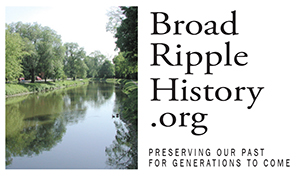
|

|

|
The real discoveries I have made on this subject cannot be explained or argued very easily via reason. Rather, they must be felt. Because of this, they cannot be received easily without a like-minded community. In my study of poetry I have found an avenue for all people, regardless of faith, to speak openly to their heart and the heart of God. This is the mission of the Poetry in the Prisons program: we advocate poetry as a means of listening to the call of God. To have an answer, a seeker of faith re-examines all previous thought and begins a new life of continuous discernment. Poetry allows the poet to find a new home as a pilgrim on a journey of the heart. When we view poetry as prayer, it is possible to experience a pilgrimage through language.
My campsite outside the Franciscan Portsuncula - Burlington, Wisconsin.
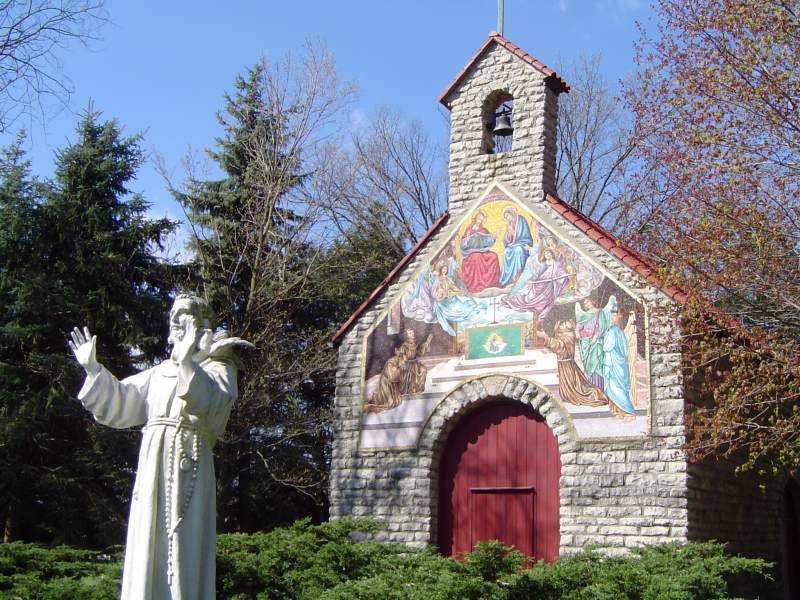
image courtesy of Joseph Foster
My current journey enacts this pilgrimage in a very literal sense. Along the way, I have been received as a perfect stranger, given meals, good conversations, and a place to sleep. I was cared for along with the neighborhood strays by a motorcycle mechanic named Russ. I was received by Brother Joseph Molinari and the entire Franciscan Queen of Peace Retirement Friary. I shared an evening of family time with Mike and Jen Shulz and their two adorable children, Hannah and Mason. I spent many hours in prayer alongside Father Jonathan, Father Gerold, and the entire Shoenstatt Family. I shared a bowl of soup, hot chocolate, and hours of conversation with a thoughtful schoolteacher named Lisa. Each one of these people springs an outpouring of different emotions in my heart, and a unique lesson in providence. All of them are tied to the choice of charity, perhaps one of the most valuable universal freedoms found in every human heart. These friendships always began with an act of charity. We tested each other by giving a bit of ourselves and were then put at ease by the way we were received. As the fear barriers were slowly bridged by this understanding, we began to trust each other and peace was shared between our hearts. We were strangers no more. I had an encounter like this at least once a day. This peace between strangers somehow gave me great hope for the future of our communities, our nation and the peace of our global family.
Camping in front of Russ's motorcycle repair shop.

image courtesy of Joseph Foster
| Brought to you by: |

|

|

|
Of course, however, this was not always the outcome of every encounter. A few nights ago, I found myself enclosed again by the worry of finding a place to camp. As I walked through Madison, Wisconsin, a woman called to me from across her front yard, asking if I had walked far. After I explain my journey, she asked if I wanted a turkey sandwich. It was getting late, and I had six miles to go to reach farmland suitable for camping. I agreed anyway, for I thought the interaction might teach me a valuable lesson. She introduced herself as Cathy, and then introduced her husband, Rich. I sat on the bench with Rich while she went inside to prepare the meal. He worked construction for a living, pouring concrete for various types of foundations. He didn't say much, and seemed to be eyeing me pretty carefully. He went inside when Cathy returned with the sandwich and a glass of apple juice. She told me that she had worked odd jobs for twenty years while raising their two kids.
"We're getting ready for the last quarter of our life together," she said. "The kids are all grown now and doing their own thing. Rich and I are best friends. It's important to remember why you married someone when you get this old. We got married because we enjoy each other's company. Soon we'll buy ourselves a little house outside Dane County somewhere."
She said Rich used to drive freight trucks for a living. His father was a truck driver too. He taught Rich how to drive a semi when he was only fourteen. Chewy, their eleven year old dog, sat quietly next to me for most of the visit. He was such a calm animal. When Rich returned from the house, he asked me to set my backpack up straight so the dog wouldn't urinate on it. Apparently, Chewy had some sort of kidney disease. Rich said that the doctors gave him six months to a year.4
Lake Wisconsin sunset.

image courtesy of Joseph Foster
It was getting late. I wanted to call it a day, so I asked for permission to camp in their yard for the night. Cathy looked at her husband who quickly said it would be alright. She showed me a good place to set up near the tracks behind the house and then went inside as I began pitching the tent. Cathy returned ten minutes later with surprising news.
"Nope! No, I'm sorry," she shouted, waving her arms. "This is not going to work. I'm real sorry but you're not going to be able to camp here tonight. Rich is in there, freaking out. He says he doesn't know you from a hole in the wall. I always want to trust people but everyone always says I need to get both feet in their shoes first. Rich claims I only have one foot in your shoe. I'm real sorry. You're going to have to leave. I'm so embarrassed. I'm so sorry."
I packed my things in a hurry and apologized many times, thanking her for the sandwich and conversation. I didn't know what to say. I didn't want her to feel bad. I understood the situation and I only wanted to leave, fast. Her husband was afraid of me, and that was all.
For more information about The Prisoner's Walk or the Poetry in the Prisons project please email Joseph at poetryintheprisons@yahoo.com or visit www.mvsc.k12.in.us/mhs/poetry/. If you would like to donate any amount to Poetry in the Prisons, please make checks payable to "The Indianapolis Peace and Justice Center" and mail to Joseph Foster at 6166 Carrollton Ave, Indpls, IN; 46220.
The Travelers
On this road we are invited to walk as if
every moment is the same destination,
to listen when we pray as if every silent word
is a rosebud handed to us by God,
to give thanks when we eat
as if the meal was earned by someone else.
In the journals of ordinary life, the travelers read daily entries
as if they were written by someone who knows us very well,
someone we have only seen once,
whose love for us is expressed not in letters on the page
but in every curve of the pen,
someone we will one day see again.
In the gaze of the burning sun,
we find a pathway that leads to God.
Our journey is made by listening in blindness
as we walk the deserted places on the other side.
Where every footstep is a vision of light,
every moment is a reflection focused upon the center of life.
We become a beam of divine love traveling as pilgrims,
covering great distances without moving anywhere at all.
And in the late hour of every night,
we find rest within a shelter that does not belong to us,
we sleep as children do after a long day of play.
Joseph Foster 2005

|

|

|
| Brought to you by: |

|

|

|
| Brought to you by: |


